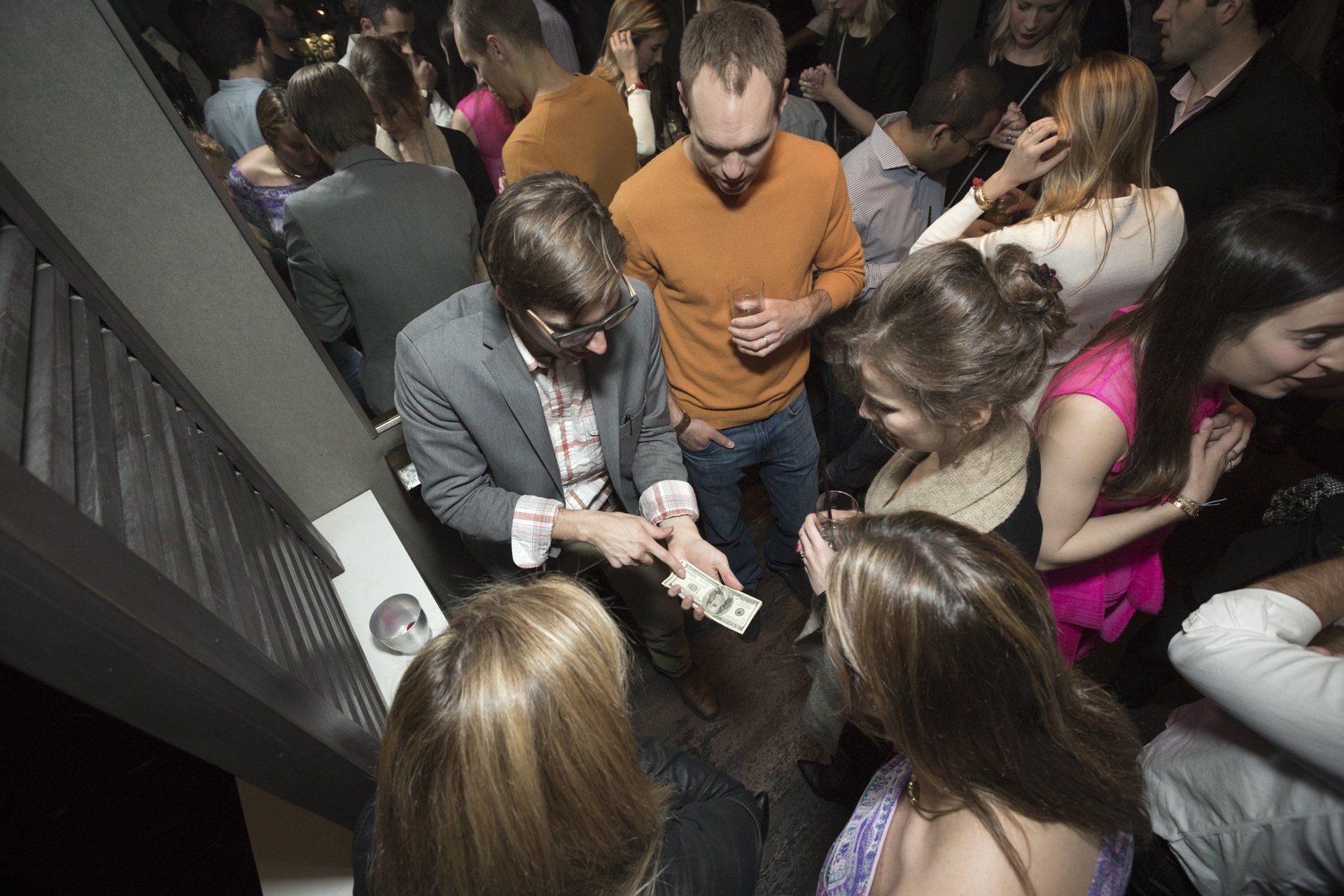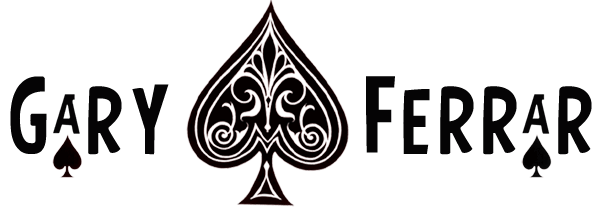What is the difference between a magician and a mentalist?
Magician vs. Mentalist. Which is right for your event?

Whether you're a casual observer of AGT or Fool Us, or an aspiring magician yourself, you've probably come across the terms "magician" and "mentalist." While they both conjure up images of wonder and awe, they are distinct branches of the magical arts. Especially when looking to book entertainment for a private event, you might be wondering, "What exactly is the difference between magic and mentalism?" Well, there's a huge difference, but it's not what you think.
The Magician: Master of Illusion
Let's kick things off with the magician, the enchanting performer known for their sleight of hand, grand illusions, and visually stunning tricks. Magicians are the folks who can make a coin disappear, pull a rabbit out of a hat, or saw a volunteer in half (don't worry, it's just an illusion!). Here are a few clues to know you're watching a magician:
- Sleight of Hand: Magicians are masters of dexterity. We spend countless hours honing our skills to manipulate objects in a way that deceives the eye.
- Props and Gadgets: Magicians often use a variety of props, gimmicks, and secret devices to create their illusions. From magical wands to cups and balls, we tend to carry around a bunch of stuff that we need to make the illusions happen.
- Overly Fancy Stuff: Though I don't wear a sequined vest, many magicians do. The stereotype of a top hat and cape exists for a reason. Unlike mentalists, magicians tend to have a lot of fancy outfits, and you're likely able to pick one out of a crowd.
The Mentalist: Mindreader Extraordinaire
Now, let's turn our attention to the mentalist, a unique breed of magician who specializes in the mysteries of the mind. Mentalists appear to possess supernatural powers of clairvoyance, mind reading, and telepathy, but their secrets lie in psychology, suggestion, and keen observation. Here are a few clues to know you're watching a mentalist:
- Psychological Manipulation: Mentalists are experts at reading body language, facial expressions, and subtle cues from their audience. We use this information to seemingly read minds and predict choices.
- An abundant use of volunteers: Ever seen a mentalist conduct a "cold reading" where they seemingly reveal personal details about a stranger? It's a skill that involves making educated guesses based on general observations and human tendencies. Most mentalists material requires a participant in order to work.
- A lack of props: Mentalists often engage their audience in interactive mind games, inviting them to participate and experience the sensation of being part of the act. We might use a chalkboard or envelop, but unlike a magician, we can usually walk onstage with just a briefcase and get to work.
My show "Nothing Here is Real" was able to run 1.5 hours and load in with just a small case because it was primarily mentalism.

The Secret: Both of these artforms require the same skill set!
In the world of magic, there's room for both magicians and mentalists, because each can do the same thing. If a bartender can make a great old fashioned, odds are they can also make a pretty good mojito. While magicians dazzle us with their visual spectacle and sleight of hand, and mentalists tap into the depths of the human psyche, we use the same tools of misdirection and sleight of hand for both presentation styles.
Should you hire a magician or a mentalist?
While the Ven diagram of magic and mentalism is pretty much this:
there are still reasons to choose one over the other.
- Audience Preferences: Consider the preferences and interests of your audience. Do they enjoy visual and physical illusions, or are they more intrigued by the mysteries of the mind? Mentalism can feel more "trendy" at the moment. But if it's a corporate gathering or a wedding, classic sleight of hand can add some old-school charm and an element of sophistication to your event.
- Interaction Level: Determine how much interaction you want between the performer and the audience. Mentalists often involve the audience more directly in their psychological experiments, creating a highly interactive experience. Depending on your group, that can be a beneficial or detrimental.
- Venue and Logistics: Evaluate the venue and logistics of your event. Some magic tricks may require more space or longer setup time, so make sure your chosen performer can accommodate the venue's requirements.
Let's wrap this up...
In the end, whether you choose a magician or a mentalist, you're already guaranteeing a more enjoyable and memorable experience for your audience than most events. If you're unsure or want to offer a diverse experience, you could consider booking an entertainer like me, who can do both. Not having to choose in advance can be a huge advantage, because I can read the room once I arrive and cater to a broader range of interests. If you want more information about booking me for your event, you can request me here.
LOCATION
New York, New York
(will travel)
CONTACT ME
© 2024
Gary Ferrar

